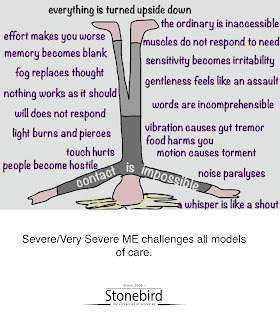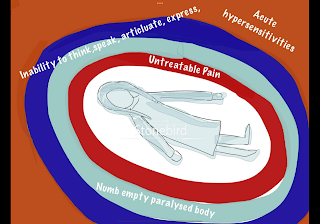The Commitment to Care

THE COMMITMENT TO CARE https://stonebird.co.uk/morenotes/index.html The poster below might seem simple, but is much, much harder in practice. The skills required to care for someone with massive complex disability and severe symptoms are not at all easy. There are so many factors involved in even the simplest task. Can the person cope with it? What is involved? What are the potential issues ? For someone who can do so much more, it can be very difficult to just do what only what specifically is asked and not the slightest bit more. This takes immense awareness, genuine empathy and understanding of the other person’s reality -which you cannot know, you have to learn and keep on learning it. I cannot emphasise enough how important it is, to maintain focus on the person and the task required. The more you can develop awareness, the safer the person is going to be, from potential negative impacts. Partnership and understanding, learning from your mistakes and a combined underst...





